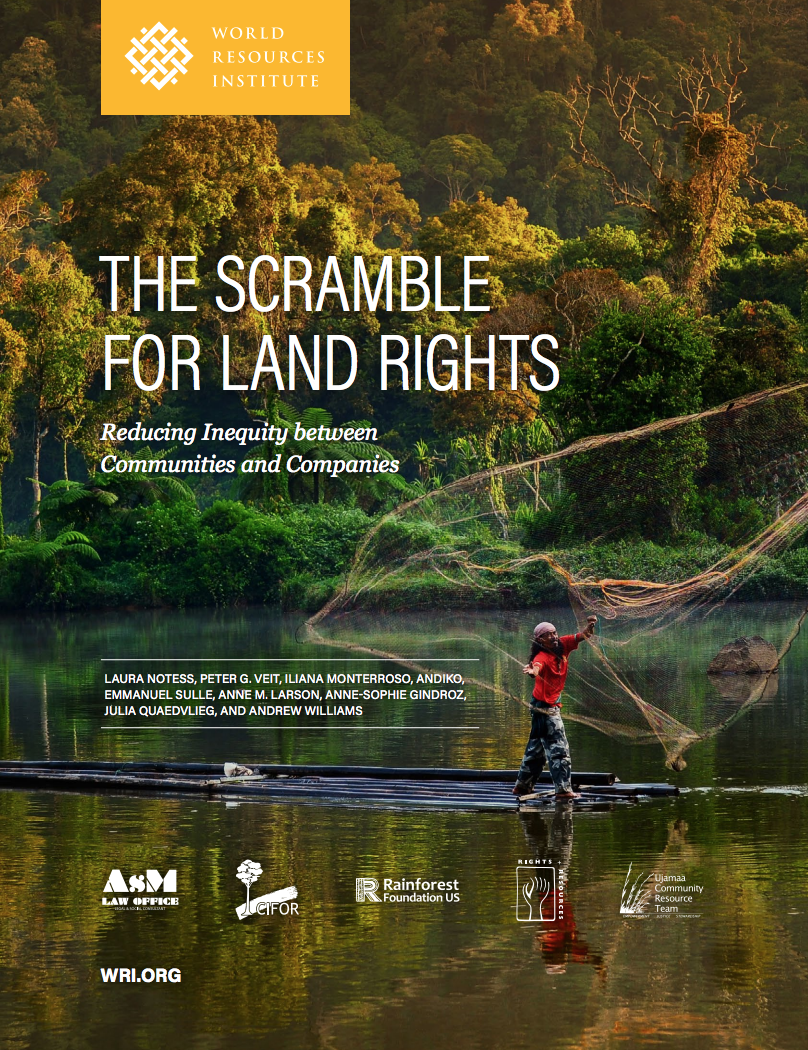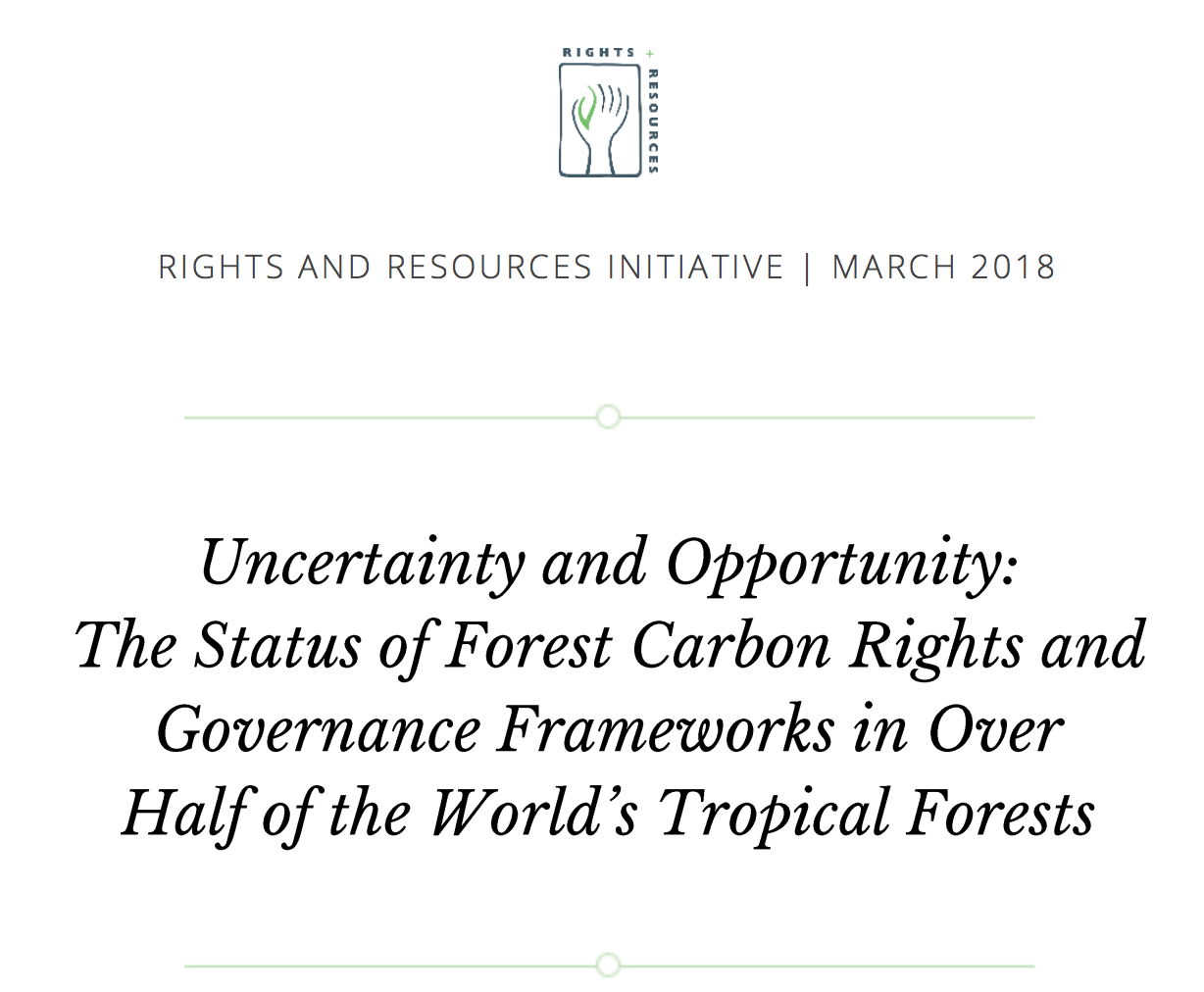Focal point
Location
The Rights and Resources Initiative is a strategic coalition of international, regional and community organizations engaged in development, research and conservation. Together, we are working to encourage greater global commitment and action on pro-poor tenure, policy and market reforms.
The RRI coalition is formed by a group of core Partners who conduct work in specific areas of their regional and thematic expertise. Partners also engage with a wide group of collaborators who participate in and support RRI activities around the world. RRI is a strategic coalition that goes beyond the traditional set of international development actors to involve a wide spectrum of organizations, each of which provides a critical perspective in the larger chain of actors necessary to advance change.
Our Mission
RRI’s Mission is to support local communities’ and indigenous peoples’ struggles against poverty and marginalization by promoting greater global commitment and action towards policy, market and legal reforms that secure their rights to own, control and benefit from natural resources, especially land and forests.
Global Challenge, a Global Opportunity
Forests cover close to 30 percent of the world's land area, and more than a billion people rely on forests to a significant extent for their food, fuel and income.
An estimated 350 million indigenous and tribal peoples are at least partly dependent on forests, including some 60 million who are substantially dependent on forests for their subsistence and livelihoods. Forests are also particularly important to poor women, who shoulder much of the burden for hauling wood and collecting and marketing forest products.
Dominant models of forest industry and conservation have often exacerbated poverty and social conflicts and have precluded pro-poor economic growth. The lack of clear rights to own and use forest land, develop enterprises, and trade in forest products has driven millions of forest dwellers to poverty and encouraged widespread illegal logging and forest loss.
The world will not meet national and global goals to reduce poverty and protect the environment unless poor peoples' rights to land and resources are strengthened. Neither will the world effectively mitigate or adapt to climate change without clarifying local tenure and governance. The next two decades are critical--both for the poor and for the forests.
There are reasons for optimism. Organizations of indigenous peoples and forest-dwelling communities are gaining voice and opportunity, and after decades of limited action many countries are beginning to consider far-reaching legal and policy reforms. There is a major opportunity to advance the rights and livelihoods of forest peoples by establishing the institutional foundations for sustained conservation and forest-based economic development.
Resources
Displaying 16 - 20 of 109The Scramble for Land Rights
Increasing global demand for natural resources is intensifying competition for land across the developing world, pushing companies onto territories that many Indigenous Peoples and rural communities have sustainably managed for generations.
Legislative Best Practices for Securing Women’s Rights to Community Lands
Brief highlights key attributes of national constitutions, laws, and regulations that play a fundamental role in protecting indigenous and rural women’s rights to community forests and other community lands. These legislative best practices were derived from a 2017 analysis of over 400 national laws and regulations, Power and Potential, which evaluates the extent to which women’s rights to community forests are recognized by national law in 30 low- and middle-income countries across Africa, Asia, and Latin America.
Uncertainty and Opportunity:
Most of the world’s remaining tropical forests lie in areas that are customarily managed and/or legally owned by Indigenous Peoples and local communities. In the context of climate change and global efforts to protect and enhance the capacity of forests to capture and store greenhouse gas emissions, the question of who owns the trees and the carbon stored therein is paramount. Clarifying this question is crucial, both for the future of the planet, and for up to 1.7 billion people worldwide who rely on forests for their livelihoods.
Power and Potential: A Comparative Analysis of National Laws and Regulations Concerning Women's Rights to Community Forests
Up to 2.5 billion people hold and use the world’s community lands, yet the tenure rights of women—who comprise more than half the population of the world’s Indigenous Peoples and local communities—are seldom acknowledged or protected by national laws.
Securing Community Land Rights: Priorities and Opportunities to Advance Climate And Sustainable Development Goals
Legally recognized and secure land and resource rights are fundamental to the advancement of global peace, prosperity, and sustainability. From the development of human cultures to the realization of democracy itself, tenure security underpins the very fabric of human society and our relationship to the natural environment. Today, insecure tenure rights threaten the livelihoods and wellbeing of a third of the world’s population, and with it, the very future of our planet.








